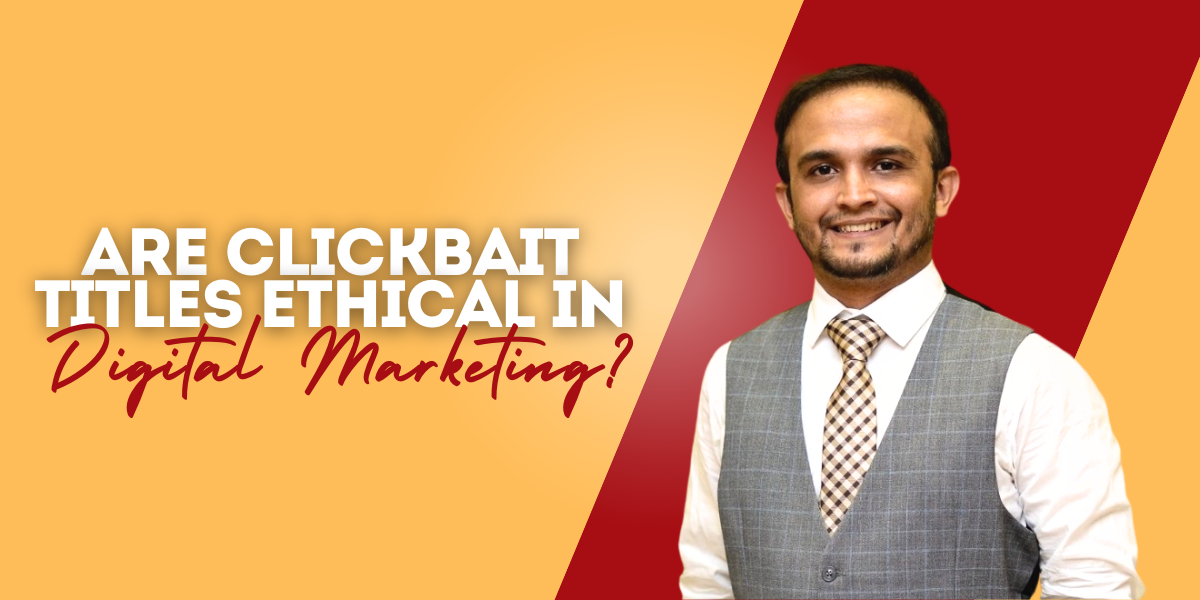Are Clickbait Titles Ethical In Digital Marketing?
In the fast-paced world of digital marketing, where attention spans are fleeting and competition for engagement is fierce, the allure of clickbait titles is undeniable. These eye-catching, often sensationalist headlines are designed to pique curiosity and compel users to click through to content, driving traffic and engagement metrics. However, the ethical implications of employing clickbait tactics in digital marketing have sparked heated debate among marketers and consumers alike. Are clickbait titles a legitimate strategy for capturing attention, or do they cross the line into deceptive or manipulative territory? Let’s explore both sides of the argument.
The Case For Clickbait Titles
Proponents of clickbait titles argue that they are a necessary and effective tool in the digital marketer’s arsenal for several reasons:
- Attention Grabbing: In a crowded online landscape inundated with content competing for users’ attention, clickbait titles stand out and capture the user’s interest in a split second.
- Increased Click-Through Rates: Studies have shown that clickbait titles often result in higher click-through rates (CTR) compared to more straightforward or descriptive headlines. For marketers focused on driving traffic and engagement metrics, this can be a compelling argument in favor of clickbait.
- Viral Potential: Titles have the potential to go viral, especially on social media platforms where users are more likely to share content that elicits strong emotional reactions or curiosity.
- Driving Brand Awareness: Clickbait titles can help increase brand visibility and reach by attracting new audiences who may not have otherwise discovered the brand’s content.
The Case Against Clickbait Titles
On the flip side, critics of clickbait titles argue that they come with significant ethical concerns and may ultimately harm a brand’s reputation in the long run:
- Deceptive Practices: Clickbait titles often promise more than they deliver, leading users to feel misled or disappointed when the content fails to live up to the headline’s hype.
- Loss of Trust: Continuously using clickbait tactics can erode trust between brands and consumers, ultimately damaging the brand’s credibility and integrity.
- Negative User Experience: Clickbait titles can result in a negative user experience if users feel tricked or manipulated into clicking on content they have no genuine interest in.
- Algorithmic Consequences: Some social media platforms and search engines penalize clickbait content by deprioritizing it in users’ feeds or search results, potentially diminishing the brand’s online visibility.
Striking A Balance: Ethical Clickbait Practices
While the debate over the ethics of titles may continue, there are ways for marketers to strike a balance between capturing attention and maintaining integrity:
- Transparency: Be transparent and honest in your headline writing. Avoid exaggeration or misleading promises and ensure that the content delivers value to the reader.
- Relevance: Ensure that your clickbait titles are relevant to the content they lead to. Misleading users with irrelevant content can damage trust and lead to negative feedback.
- Value-Driven Content: Focus on creating high-quality, valuable content that genuinely resonates with your audience. Ultimately, the best way to capture and retain users’ attention is by providing content that meets their needs and interests.
- Test and Iterate: Experiment with different headline styles and approaches to see what resonates best with your audience. Monitor engagement metrics and feedback to refine your clickbait strategies over time.
Conclusion
In conclusion, the debate over the ethics of clickbait titles in digital marketing is complex and multifaceted. While clickbait tactics can be effective in capturing attention and driving engagement, they also come with significant ethical considerations regarding transparency, trust, and user experience. Ultimately, marketers must weigh the short-term gains of clickbait tactics against the long-term impact on brand reputation and consumer trust. By adopting transparent and value-driven practices, marketers can strike a balance between capturing attention and maintaining ethical integrity in the digital marketing landscape.










